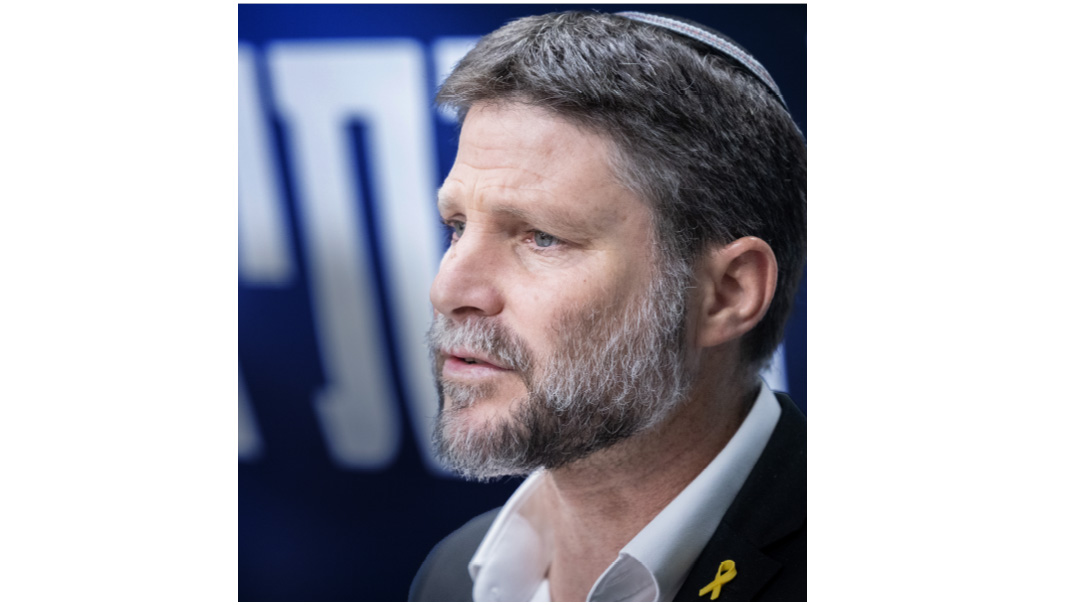Good Kindness
| April 26, 2022He allows us the illusion that we've earned it

C
hesed, by definition, implies something good. This is even more evident when we speak of Hashem’s chesed; He’s the embodiment of perfection, and it follows that His chesed is perfect as well.
In Bircas Avos, we praise Hashem for being “gomel chassadim tovim,” granting us “good chesed.” It seems strange to qualify Hashem’s kindness as good; why would we assume His chesed to be anything but good?
In addition, why does the Shemoneh Esreh use the word “gomel” when referring to His chesed instead of the colloquial “nosein” or “oseh”? What’s the importance of the word “gomel”?
Gomel comes from the word “gemul,” repayment for goods or services. Based upon this, we thank Hashem for the “chasadim tovim” that He proffers as repayment to us. Repayment? Since when does Hashem owe us payment or repayment?
Yaakov Avinu famously declared, “Katonti mikol hachasadim u’mikol ha’emes asher asisa es avadecha — I’m diminished by all the chesed and truth You have done for Your servant." Rashi explains that here, Yaakov recognized that any zechuyos he had garnered were exhausted by the abundant chesed Hashem provided him.
If this were the case for Yaakov Avinu, how much more so are we incapable of “earning” any of the good Hashem regularly bestows on us. How can we brazenly declare His chesed to be “gomel,” repayment for something we’ve done?
Our Dignity Is His Priority
Society has conditioned us to value acquiring something for almost nothing. Who doesn’t want to win that Oorah raffle or snag a bargain three for the price of one? We love free giveaways and door prizes! However, appreciating getting something for nothing isn’t our natural state of being; we’ve been rewired to think this way.
The Ramchal in Daas Tevunos teaches us the concept of “nehama d’kisufa,” the bread of shame. A normal, healthy human wants to feel he’s earned his keep and not been given a handout, which is why we value earning a salary over receiving tzedakah. Organizations like Yad Eliezer and Tomchei Shabbos invest effort in maintaining the privacy of their beneficiaries because they understand the pain of nehama d’kisufa.
Rav Elya Lopian explains that Hashem is concerned for our feelings of shame as well. True, we could never earn the “right” to the gifts Hashem continuously pumps into our mortal bodies — from the functioning of major organs down to the intricacies of cellular activity — but He wants to spare us the shame of nehama d’kisufa in being perpetually on the receiving end.
Hashem allows us to feel that we have, in a small measure, earned His chesed via the currency of mitzvah observance. This is “gomel chasadim tovim”; even His chesed is calculated precisely to feel like a form of repayment, gemul. This added bonus transforms an “ordinary” act of chesed into a Divinely orchestrated “chesed tov.”
Payment Plan
We’re reminded of the exquisite sensitivity Hashem, the Gomel Chasadim, exhibits in apportioning His chesed as earned payment, as opposed to nehama d’kisufa, with the very next words in tefillah: “V’konei hakol.” Hashem is the “koneh,” the owner, of every inch of our beautiful world, including… us! We’re His from the day of birth until the day of death, ever indebted by virtue of our very existence.
“Ad yaavor amecha, Hashem, ad yaavor am zu kanisa.” Every day in Az Yashir we recall the way Hashem took us, a lowly band of slaves devoid of mitzvos, and performed miracles on our behalf, rescuing us from the most morally depraved nation on earth. This was an act of acquisition — “am zu kanisa” (this nation You acquired) — and from then on, we became His people, responsible for fulfilling His commandments. Nonetheless, Hashem the koneh allows us the dignity of “earning” our keep.
His kindness progresses further. He is “zocher chasdei Avos,” invokes the service of our Avos, and considers their mitzvos a “chesed” worthy of compensation as well. However, for the Avos, Hashem repays exponentially more: “U’meivi goel livnei veneihem” — thousands of years later, He repatriates the deeds of our Avos with the ultimate gift of geulah.
Up to three times daily, we describe the way Hashem allows us the illusion of earning our keep, crediting us for fulfilling our most basic duty to Him as if we’ve done something superlative.
How do we measure up? Are there people in our life, perhaps our assistants at the office, our hired help, or even our spouse and children, who we feel “owe” us their service? How do we relate to them? Do we treat their contribution as givens, expressing only frustration with subpar performance? Or do we emulate the chasadim tovim of Hashem, and instead of treating people as acquisitions, we genuinely search for opportunities to maintain their dignity and self-respect?
Faces of Salvation
“Melech ozer u’moshia u’magen” express Hashem’s support during an eis tzarah. The three adjectives (ozer, moshia, magen) seem redundant. What’s the practical difference between them?
Challenge and adversity are universal features of life. Fortunately, we’re never left to navigate them alone.
Sometimes, Hashem renders assistance as an “ozer.”
When we’re in a difficult situation and suddenly find a solution “entirely on our own,” Hashem is in fact there, behind the scenes in the role of ozer.
When I call an ambulance for the child struggling to breathe…
When I extricated myself from a toxic relationship…
When I researched a shidduch for days and determined it wasn’t right…
Sometimes Hashem renders assistance as a “moshia.”
When a difficult situation resolves itself without our own intervention, Hashem has assumed the role of moshia.
When I’m crossing the street and someone pushes me from the path of a speeding car…
When someone offers me a much-needed loan before I even ask…
When a police officer appears just as a thief attempts to rob my store…
Sometimes Hashem renders assistance as a “magen.”
When we didn’t even know we were in trouble and Hashem saves us, He has assumed the role of magen.
When the surgeon serendipitously removes a dangerous growth during a routine surgery…
When the IRS revokes a steep charge before it’s formally issued…
When a terrorist is discovered and neutralized before he can attack…
Whether as the gomel chasadim tovim who is koneh hakol, or in the role of our ozer, moshia, and magen, the conclusion of Bircas Avos reminds us of the abiding love the ultimate Baal Chesed has for His people.
Mrs. Elana Moskowitz has been teaching in seminaries for nearly 20 years.
(Originally featured in Family First, Issue 790)
Oops! We could not locate your form.




